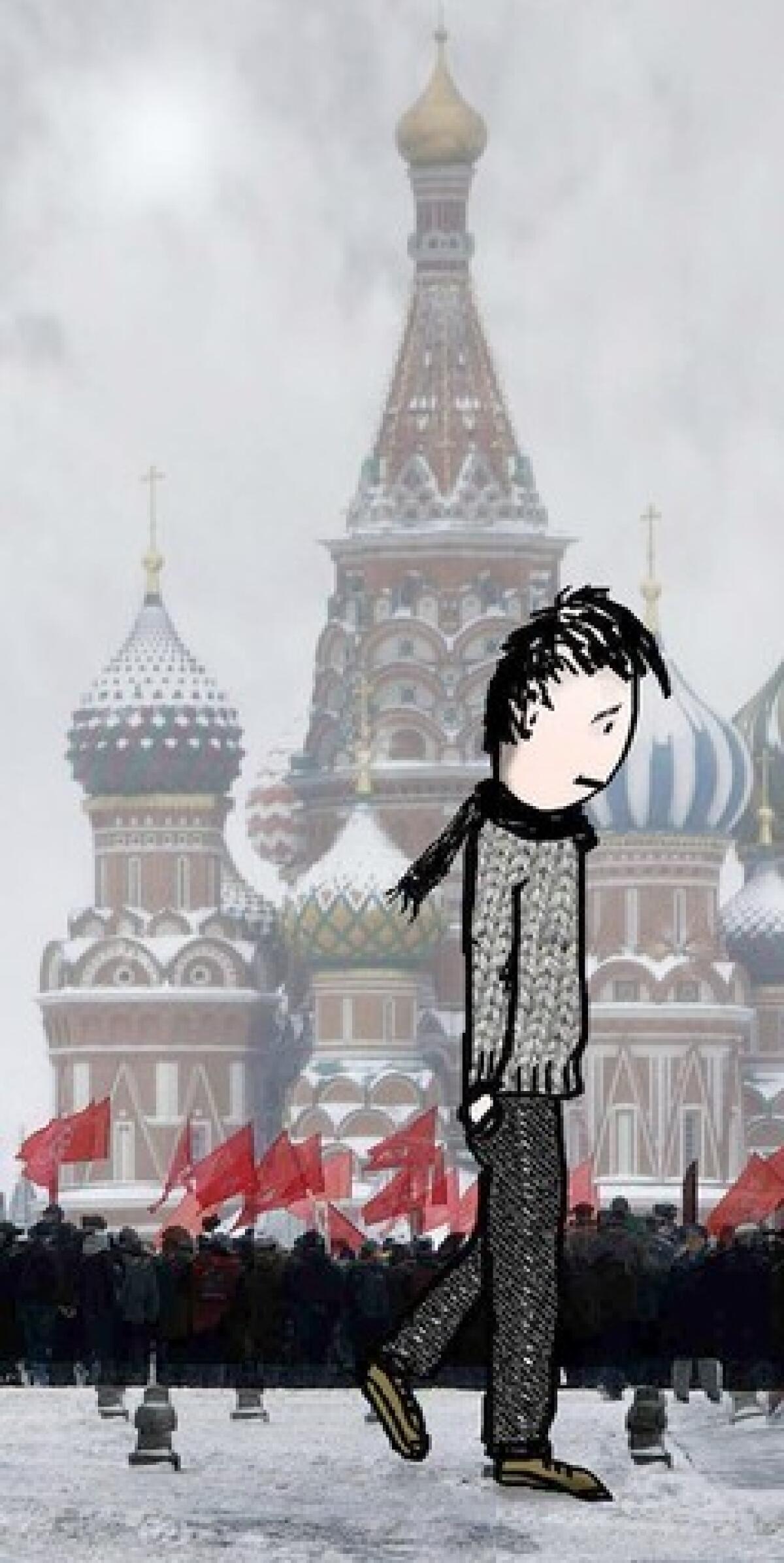‘Everything Flows: A Novel’ by Vasily Grossman

Everything Flows
A Novel
Vasily Grossman,
translated from the Russian
by Robert Chandler, Elizabeth Chandler and Anna Aslanyan
NYRB Classics: 272 pp., $15.95 paper
There’s a moment in “Everything Flows,” Vasily Grossman’s brief, unfinished and powerful final novel, that sums up the whole spirit of the author’s last years, after the Soviet secret police seized his masterwork, “Life and Fate,” in 1960 and left him to rot with no hope of publication, writing for an audience of one.
Ivan, a prisoner of the Gulag for more than 30 years, has returned to Moscow and Leningrad to find a world as unwelcoming as Siberia. He wanders the streets like a man cured of the plague but still contagious; his mere appearance terrifies former colleagues and distant family members.
This return amounts to a kind of accusation, regardless of Ivan’s quiet voice and careful manners -- because when he encounters old acquaintances, so much remains unsaid. Does Ivan blame them? He could easily accuse every person he meets.
But Ivan declines any chance at an easy way out. He doesn’t denounce his old accusers; he heads back to the train station. “There were occasions when old men released from a camp had asked to be readmitted,” Grossman writes. “Ivan . . . now felt like going back again behind the barbed wire himself. He wanted to seek out those who had got to feel so accustomed to their barrack stoves, so at home with their warm rags and their bowls of thin gruel. He wanted to say to them, ‘Yes, freedom really is terrifying.’
“And he would have gone on to say to these old men of the camps that there is no higher happiness than to leave the camp, even blind and legless, to creep out of the camp on one’s stomach and die -- even only ten yards from that accursed barbed wire.”
That’s a powerful passage, and it suggests the polemical strength of Grossman’s later writing. (He died in 1964.) What “Everything Flows” lacks in comprehensiveness -- the primary virtue of the 880-page “Life and Fate” -- it makes up for with relentless focus and strident anger. Grossman wrote his previous novel when he still had hopes of reaching an audience; “Everything Flows” suffers from no such illusions.
As such, Grossman bares everything in this novel, including much that otherwise might not have been said. Interspersed here, for instance, is one of the earliest arguments that Stalin was not the betrayer but rather the true heir of Lenin. “In order to seize power,” Grossman writes, “[Lenin] sacrificed what was most holy in Russia: her freedom. The cultured, intellectual side of Lenin . . . always receded into the background as soon as the going got difficult. Lenin’s true character then manifested in his iron will.”
The second half of “Everything Flows” finds Ivan in a provincial city, working as a laborer and living with a middle-aged woman, Anna, whose husband was killed in the war. Both have been witnesses to the terrible crimes that undergird the Soviet state: Anna helped implement the Ukrainian famine of the early 1930s, when Stalin intentionally killed more than 3 million of his own citizens.
“It’s impossible to forget,” Anna confesses to Ivan. “It’s all still there . . . a piece of iron in my heart, like a shell fragment.” This is the style at which Grossman excels, turning the conventions of socialist realism against the state that approved them. The personified weapon, “a piece of iron in my heart,” is a classic example: It would not be uncommon, in Soviet state literature, for a soldier to speak of a rifle or a tank as his “wife.” But Grossman turns the metaphor on its head, forging the iron into a conscience that eats at Anna, oblivious to any “higher end” that might seek to justify the catastrophic human price.
The famine was the one catastrophe largely absent from “Life and Fate,” and Grossman seems to have felt obliged, in his final novel, to make up for the omission. The years of starvation are searingly recounted -- especially considering Grossman had no access to historical accounts -- but this throws the novel somewhat off balance. Before Ivan can tell Anna about his time in the Gulag, she falls ill with cancer, and the novel itself dies a swift death. There is a quick summing up, and a beautifully allusive ending, but it’s clear that Grossman didn’t have time to finish the story as he would have wished.
We are therefore left, in a way, to complete the novel in his place. Before she dies Ivan tells Anna: “I used to imagine being embraced by a woman . . . as something so wonderful that it would make me forget everything. . . . [But] happiness, it turns out, will be to share with you the burden I can’t share with anyone else.”
Here the power of Grossman’s final novel emerges, like a late Michelangelo, precisely from its unfinished state. Across the decades, it is impossible not to feel a responsibility to reach out and attend Ivan’s subsequent confession, however brief, in Anna’s stead -- a terrible burden, but one we share not only with Ivan but with his doomed and forsaken creator as well.
Petersen is an assistant editor at n+1.
More to Read
The biggest entertainment stories
Get our big stories about Hollywood, film, television, music, arts, culture and more right in your inbox as soon as they publish.
You may occasionally receive promotional content from the Los Angeles Times.






